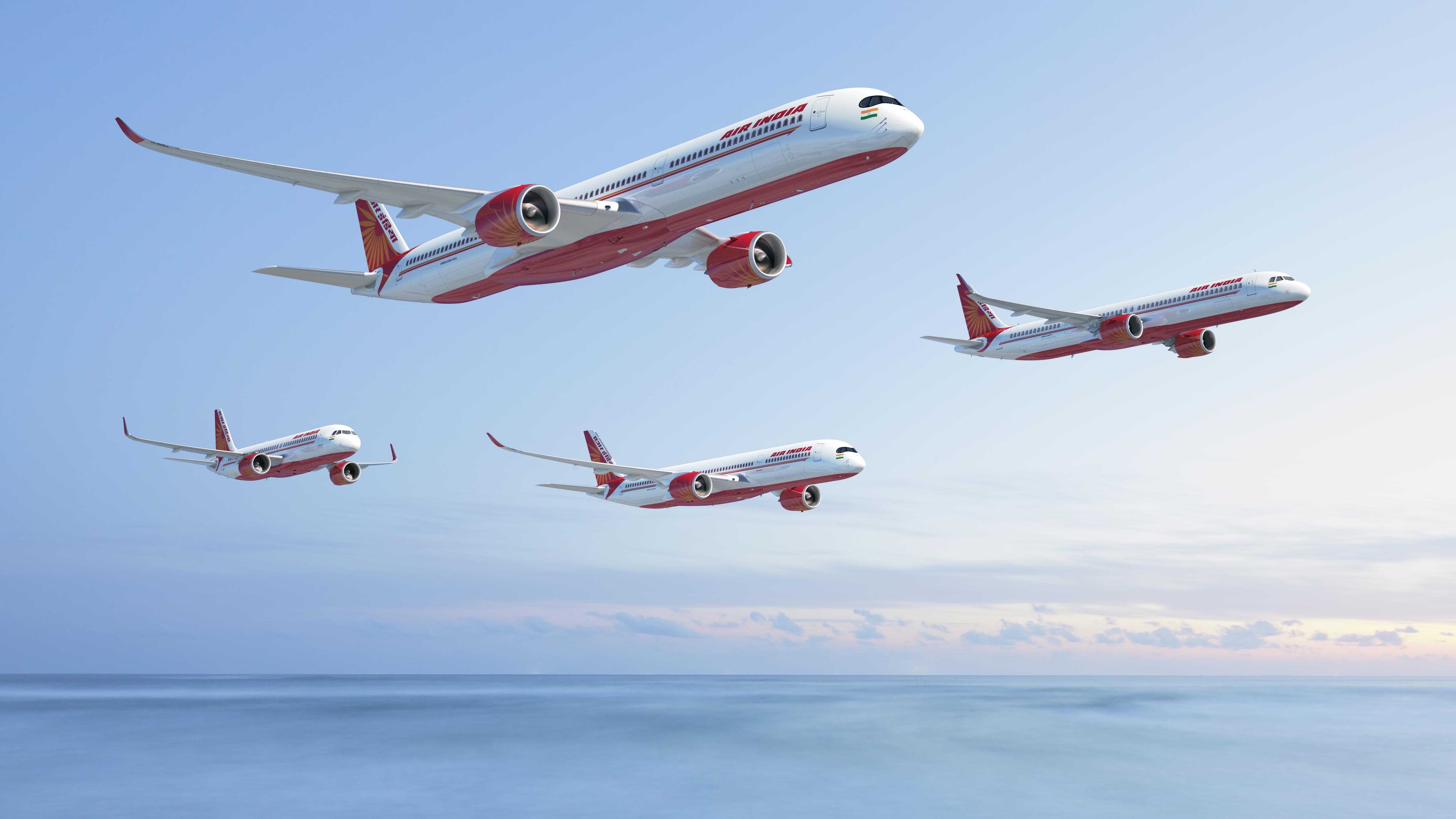Air India Confirms Orders For 470 Airbus And Boeing Aircraft

Air India's new Airbus A320neo family and A350 fleet
Credit: Airbus
Air India has agreed to orders for 470 Airbus and Boeing widebodies and narrowbodies, sending a powerful signal about the carrier’s growth ambitions in the booming Indian market. Unveiled during Aero India 2023, the Airbus component consists of a letter of intent (LOI) to acquire 210 A320neo-family...
Subscription Required
This content requires a subscription to one of the Aviation Week Intelligence Network (AWIN) bundles.
Schedule a demo today to find out how you can access this content and similar content related to your area of the global aviation industry.
Already an AWIN subscriber? Login
Did you know? Aviation Week has won top honors multiple times in the Jesse H. Neal National Business Journalism Awards, the business-to-business media equivalent of the Pulitzer Prizes.




